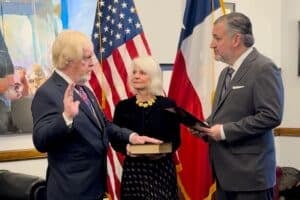Norway, the home of the Nobel Prize, has waded into the debate surrounding comments made by former president FW De Klerk, with a reminder that the Rome Statute which established the ICC explicitly mentions the crime of apartheid.

Norway, the country in which international icon Nelson Mandela and apartheid-era president FW de Klerk were awarded the Nobel Peace Prize in 1993, waded into South Africa’s latest political debate, by describing described apartheid as “an atrocious political system that deprived millions of their basic human rights”.
The Scandinavian country’s view on the impact caused by apartheid, comes in the wake of the latest offensive led by political parties and organs of civil society, questioning De Klerk’s integrity following an overnight retraction over his earlier statement that apartheid was “no crime against humanity”.
Due to ongoing pressure from all quarters, including that from the Economic Freedom Fighters (EFF) former chairperson Dali Mpofu, who has launched a campaign to recall De Klerk’s prize, the former president, who, along with Thabo Mbeki, served as one of Mandela’s two executive deputies in the government of national unity after the country’s first racially-inclusive polls in 1994, has buckled under pressure and made an-about-turn. His foundation issued an apology for his utterances, which was roundly rejected as too little, too late.
Reacting to the raging storm around De Klerk, which has cast aspersions on whether he deserved the prize, also presented decades ago to one of ANC’s founding fathers Chief Albert Luthuli and later to Anglican Archbishop Emeritus Desmond Tutu, Jon-Åge Øyslebø, Minister Counsellor of the Royal Norwegian embassy in Pretoria, depicted apartheid as “an atrocious political system that deprived millions of people their basic human rights”.
He said said Norway was party to the Rome Statute, which established the International Criminal Court.
“The definition of crimes against humanity in Article 7 of the Statute, over which the court has jurisdiction, explicitly mentions the crime of apartheid,” said Øyslebø.
He added: “Whether the gross human rights violations committed under apartheid also would amount to the crime of genocide under international law is, however, a question for international law interpretation.”
Øyslebø said he was “proud of the role Norway and other Nordic countries played in the struggle to end apartheid”.
“With broad support among the Norwegian people, our government provided financial as well as political and moral support. When then president Nelson Mandela paid a state visit to Norway in 1997, he told the king and queen that Norway had a special place in the South African hearts, due to their support for the anti-apartheid movement, when other nations looked away,” recalled Øyslebø.
Asked on whether De Klerk’s Nobel Peace Prize could be annulled due to him being embroiled in an apartheid spat, Øyslebø said Norwegian Nobel Committee members were elected by parliament for a period of six years and did not represent “whichever government or governments in office during that time”.
“The committee’s decisions are therefore taken independently of the government,” he explained.
On the impact the De Klerk debate has sparked, Øyslebø said: “South Africa has shown before that the country can handle difficulties.
“Despite all the suffering caused by apartheid, despite conflict and grievances, South Africans carried out a truth and reconciliation process, broadly admired and praised throughout the world.
“To me, that bodes well for the future of this country.”
In jointly awarding the prize in 1993, the Norwegian committee said it came to the decision of presenting the world’s biggest honour to Mandela and De Klerk for “their work for the peaceful termination of the apartheid regime, and for laying the foundations for a new democratic South Africa”.
The two leaders, said the committee, reached agreement on the principles for a transition to a new political order “based on the tenet of one man-one vote”.
Reconciliation amounted to South Africa looking forward – “instead of looking back at the deep wounds of the past”.
For more news your way, download The Citizen’s app for iOS and Android.






